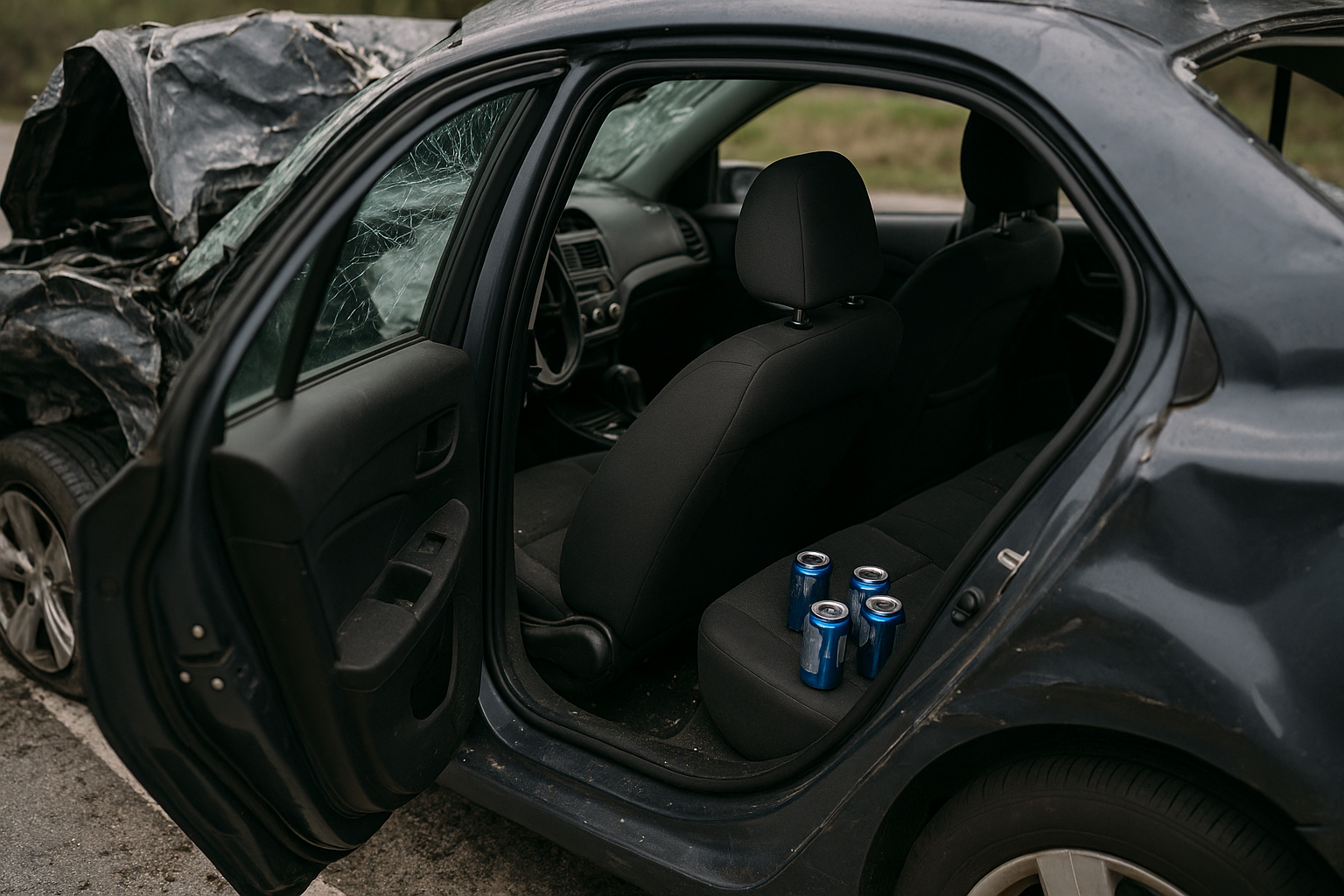At George C. Creal, Jr., P.C., we’re dedicated to defending clients against DUI and related charges by staying informed on Georgia’s legal landscape. The recent case of Rodriguez v. The State (A25A0185, Court of Appeals of Georgia, May 9, 2025) provides valuable insights into how evidence like alcohol containers can impact a case, even when DUI isn’t charged. Here’s a summary and analysis of this ruling for drivers facing similar charges.
Case Overview
Eric Rodriguez was convicted by a DeKalb County jury of homicide by vehicle in the first degree, hit and run, and other charges stemming from a fatal crash in November 2020. Rodriguez’s SUV rear-ended a stopped vehicle on Peachtree Industrial Boulevard, killing a child, Amiah Kenney. Rodriguez fled the scene on foot after initially attempting to drive away. Investigators identified him as the driver using the SUV’s VIN, witness testimony, cell phone data, and DNA on empty beer cans found in the vehicle. Rodriguez appealed the trial court’s denial of his motion for a new trial, arguing the beer can evidence was unfairly prejudicial.
run, and other charges stemming from a fatal crash in November 2020. Rodriguez’s SUV rear-ended a stopped vehicle on Peachtree Industrial Boulevard, killing a child, Amiah Kenney. Rodriguez fled the scene on foot after initially attempting to drive away. Investigators identified him as the driver using the SUV’s VIN, witness testimony, cell phone data, and DNA on empty beer cans found in the vehicle. Rodriguez appealed the trial court’s denial of his motion for a new trial, arguing the beer can evidence was unfairly prejudicial.
The Legal Dispute
Rodriguez sought to exclude the beer can evidence, arguing it implied intoxication despite no DUI charge and that its probative value was low since he offered to stipulate to his identity as the driver. The trial court, applying OCGA § 24-4-403’s balancing test, admitted the evidence, finding it “highly relevant” to identity and motive for fleeing, with its probative value not substantially outweighed by unfair prejudice. At trial, Rodriguez’s defense claimed the crash was an unavoidable accident due to weather, low light, and the victim’s vehicle position, not intoxication. The jury convicted Rodriguez on most charges, and he was sentenced to 18 years.
The Appeal Outcome
The Georgia Court of Appeals affirmed the trial court’s ruling. While acknowledging the beer can evidence had limited probative value for identity—given Rodriguez’s stipulation and other strong evidence like VIN and witness testimony—the court found it relevant to explain Rodriguez’s motive for fleeing. The State argued Rodriguez fled to avoid intoxication testing, a theory central to rebutting his claim of panic-driven flight. The court, emphasizing the trial court’s discretion under Rule 403, found no clear abuse in admitting the evidence, as its prejudicial effect did not substantially outweigh its probative value.
Takeaways for DUI Defense
This case highlights the challenges of excluding alcohol-related evidence, even without a DUI charge. Courts may admit such evidence if it supports the State’s narrative, like motive for hit and run. It also underscores the importance of a strong defense strategy to counter prejudicial implications. At George C. Creal, Jr., P.C., we meticulously challenge such evidence to protect your rights. If you’re facing charges involving alcohol-related evidence, contact us for a free consultation.
Disclaimer
George C. Creal, Jr., P.C., Trial Lawyers – Your Trusted Georgia DUI Defense Team This blog post is for informational purposes only and does not constitute legal advice.
About the Author: George C. Creal, Jr. is a leading DUI and criminal defense attorney serving Cobb County and the greater Atlanta area. With over 30 years of experience and hundreds of trials under his belt, he is known for aggressive defense and personalized client service.
Learn more at https://www.georgecreal.com/dui-dekalb-county/

